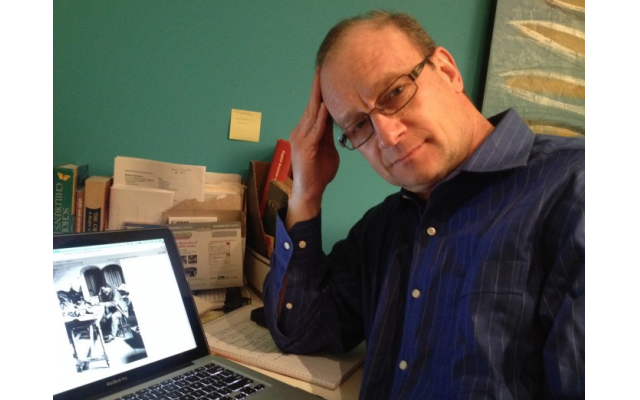An Emotional Week Begins and Ends with Shabbat
The week began with the tragedy in Pittsburgh ends with a nationwide call to #ShowUpForShabbat.
Dave Schechter is a veteran journalist whose career includes writing and producing reports from Israel and elsewhere in the Middle East.
Even after a week of memorial services and vigils, some two dozen held at synagogues and schools across the Atlanta metropolitan area, attendance at services this Friday night and Saturday likely will be greater than usual.
Many who attend Shabbat services infrequently, or perhaps not at all, may feel it important to join their co-religionists, to honor the memories of the 11 Jews slain on Shabbat morning a week ago at the Tree of Life-Or L’Simcha synagogue in the Squirrel Hill neighborhood of Pittsburgh.
They may come as an act of defiance to the malevolent anti-Semitism expressed not only by the gunman who took the lives of eight men and three women, ages 54 to 97, but also to the dark forces that have made public expression of Jew hatred, if not generally acceptable, then seemingly tolerated to a disturbing degree. As measured by the Anti-Defamation League, the number of anti-Semitic incidents in the country increased by 57 percent from 2016 to 2017, and by 77 percent on college campuses in the same period.
The day before the shootings, Rabbi Daniel Dorsch of Congregation Etz Chaim (the Hebrew words for Tree of Life) had expressed a “sense of fortitude for how well Jews have integrated into the mainstream of American society.” The day after, he wrote, “How sad and misguided that sentiment now seems in light of the past 12 hours. I feel like the Psalmist who once stated that ‘at the moment of my complete security, I will never be shaken,’ only to later rediscover that the world remains quite a shakeable place.”
Those most shaken in Atlanta’s Jewish community have roots in Pittsburgh, in Squirrel Hill and at the Tree of Life synagogue. Bobby Harris lamented that the synagogue where he felt so secure, where he pondered – as only a young person can – the mysteries of life and his place in the world, where his family celebrated numerous joyous events, and where his father’s funeral was held “is now associated, wherever I go” with what the Anti-Defamation League terms the deadliest attack of Jews in U.S. history.
The massacre at the Tree of Life synagogue took place two weeks after the 60th anniversary of the Oct. 12, 1958, bombing of The Temple, by men who objected to Jewish support of the civil rights movement. The gunman in Pittsburgh ranted on social media about Jewish support for immigrants coming to America.
Rabbi Peter Berg was a guest Monday on WABE radio’s “Closer Look” program. The host, Rose Scott, asked what message he had delivered to his congregants at The Temple and the Jewish community at large. “Our message is, first and foremost, one of comfort, that our obligation is to practice our religion freely in this country,” Berg said.
Jews also have an obligation “to curb all conversations that begin with hatred, of anybody,” Berg said. “It is unacceptable in this country, that in this year and at this time, that there could be so much unfathomable hatred.”
Just as in the aftermath of The Temple bombing, when expressions of support came from clergy and lay people of other faiths, Atlanta’s Jewish community – which today is active in numerous inter-faith projects – has received public expressions of support from local leaders in the Christian and Muslim communities.
On Tuesday morning, dozens of men and women – with the titles Rabbi, Reverend, and Imam, and from the worlds of politics, law enforcement, and civic advocacy – gathered at The Temple for a demonstration of solidarity, organized by the American Jewish Committee.
In response to the synagogue tragedy in Pittsburgh, the AJC started a nationwide campaign called “#ShowUpForShabbat,” calling on Jews, and non-Jews, “to flock to synagogues this coming Shabbat,” (Friday night and Saturday, November 2-3).
News of the desecration of a synagogue in the neighborhood where she grew up reached Beth Gluck in Phoenix, where she was attending the Jewish National Fund’s national meeting. Among her comments to the Atlanta Jewish Times was this: “It’s really not a time to lean left or lean right. It’s a time to lean toward what’s good, toward what’s family. You don’t lean to the extremes. You lean to the healthy, vibrant center and you lean toward what you know is good.”




comments